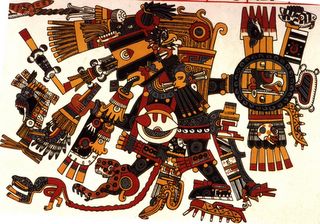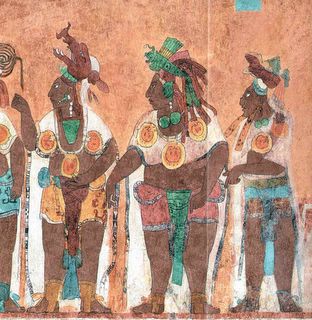 A.J.P. Taylor
A.J.P. TaylorAt the time, 1961, Taylor's thesis was an added breath of fresh air from the previous consensus which advanced the view of a carefully planned Nazi plan to conquer Europe, that was carried out methodically. The problems with this view are in retrospect rather obvious. It assumed a level of calculation and detailed planning that was rather unlikely and it also did not fit with Hitler's rather opportunistic methods.
Unfortunately Taylor's idiosyncratic style and tendency to say things "pour epater le Bourgeoise", was rather infuriating further the fact that his theory was used to justify and excuse Neo-Nazi views of History didn't help. See this Website Here.
These people seem to be unaware of Taylor's The Course of German History, University Paperbacks, London, 1945. In this book Taylor rather critically views the history of Germany has a precursor to World War 1 and 2, with Germany has a dangerous influence in Europe imbuned with vicious Imperial dreams. I suspect that Taylor's distrust of German society before World War 2 lead to him downgrading the importance of men like Hitler.
At the time his thesis evoked a rather vociferous response which unfortunately was in some cases marred by Cold Warism of the worst kind.
The most amazing feature of Taylor's thesis is his ability to magically dismiss documents by reading Hitler's mind. Which is rather strange given Taylor's alleged dislike of this practice. For example Taylor states that what Hitler wanted from Poland in 1939 was Danzig and a corridor between East Prussia and the rest of Germany. Taylor holds to this thesis in the face of conspicuous evidence that Hitler wanted war and was not interested in a settlement that would deprive him of said war.
Further Taylor avoids taking into account Hitler's behavior in Poland after he conquered it. The massacres, forced deportations, destruction attempted genocide of the Poles do not fit the picture of a politician with limited aims. But then Taylor finds it impossible to take Mein Kampf, Hitler's book, seriously or so many of Hitler's paranoiac statements. Taylor seems to view this repellent brew has not worth taking seriously, so of course Hitler did not take it seriously. This is rather absurd. Hitler's behavior and decisions indicate quite conclusively that Hitler indeed took the nonsense he uttered seriously. After all the decision to murder the Jews of Europe while involved in a war with America, Britain and the Soviet Union is not the product of "rationality" but of what can only be called "irrationality", aside from being unmitigatibly evil.
Taylor's picture that Hitler was not planning for war is decisively undermined by the knowledge of truly spectacular German military expenses.
The military budget expanded rapidly, taking 17 percent of GNP in 1938-39. In the last peacetime year 52 pefennigs out of ever mark the German government spent went on defence. These were not remotely moderate proportions. In 1913, at the height of the pre-1914 arms race, the German government spent an estimated 3 percent of GNP, and devoted 24 percent of a much smaller state budget to defence purposes.
Taylor's book is now treated more and more as an example of historical literature and less and less has a serious piece of historical analysis. Its great flaw being its absurd portrayal of Hitler has a "conventional" politician. To close:
Origins remains a monument to Taylor’s passion for argument. Despite its clear signs of age, its insights still have the capacity to impress largely because of the verve and audacity of the author’s style. Yet it is often this very stylistic impudence, with its arrogant over-assertions, which grate to the extent of detracting from much of its acuity Sometimes it seems more one of Taylor’s televisual tour de force than it does a work of scholarship. His treatments of Polish policy and the transformation of appeasement after Prague still have something valuable to tell us. His insistence upon Danzig as itself the pivotal issue is against the evidence, while the immediate circumstances which produced war are simply perverse. Integral to this is his idiosyncratic picture of Hitler. It is this flaw that, like a kind of academic metal fatigue, brings the intricate structure falling to its destruction — though some parts have survived the impact. Origins has stimulated the work of a generation of historians. But its reign of influence is over. The debts to it have been fully acknowledged, and there is, frankly no reason to resort to it now other than as a piece of historiography To paraphrase the final sentence of the book: The Origins of the Second World War, has become a matter of historical curiosity.
Bibliography and Further Reading.
Bell, P. M. H., The Origins of the Second World War in Europe, Longman, New York, 1986.
Martel, Gordon, Editor, The Origins of the Second world War Reconsidered, Routledge, New York, 1999.
Robertson, Esmonde M., Editor, The Origins of the Second World War, St. Martin's Press, London, 1971.
Taylor, A. J. P., The Origins of the Second World War, Penguin Books, London, 1961.
Weinberg, Gerhard, L., Germany, Hitler and World War II, Cambridge University Press, Cambridge, 1995.



